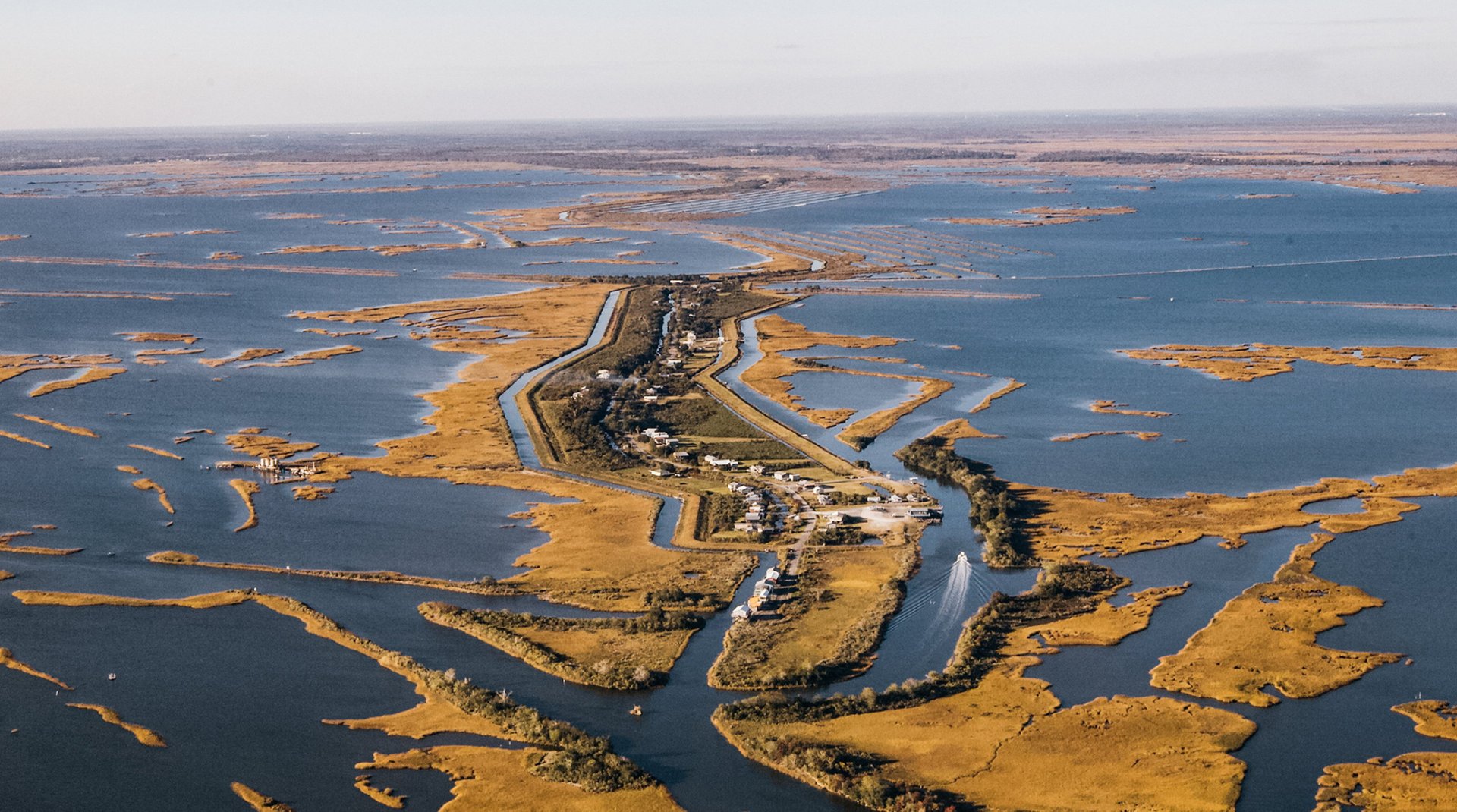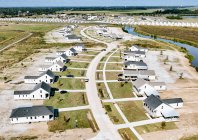
Farewell Isle de Jean-Charles
Sandra Mehl
Who could have imagined that the world’s leading economic power would one day have its own climate refugees?
On the coast of Louisiana, 130 kilometers south of New Orleans, Isle de Jean-Charles is gradually sinking. In the past it had a school, a church, and as many as 500 people living there, but today it is just a speck of land three kilometers long and 300 meters wide surrounded by the waters of the bayou. Since 1955, 98% of the surface area has been lost as water levels rise with the effects of erosion that has been attacking the shore for centuries now, plus climate change bringing more and ever fiercer hurricanes causing destruction and flooding. There is also the oil industry to blame, with no fewer than 4,000 offshore platforms in the Gulf of Mexico, and countless kilometers of channels dug in the gulf to ship the oil, causing subsidence, so even more land is lost to the water. On April 20, 2010, the explosion of the Deepwater Horizon oil drilling rig caused the largest marine oil spill ever, but this did not deter the oil industry which continued operations with devastating effects. Louisiana is the fourth state in the country for crude oil production, supplying much of the oil needed in the U.S. for domestic consumption.
In the coastal stretches of the Mississippi Delta, the equivalent of a football field is lost every hour, and Isle de Jean-Charles is in that part of the world which is experiencing the fastest rate of land loss.
…
Preview


In 2016, under the presidency of Barack Obama, $48 million in federal funding was awarded to the state of Louisiana to resettle the remaining residents. Where would they go? To an old sugar plantation in Gray, 70 km north. So by late 2022, after six years of preliminary work and administrative challenges, the land was developed and the islanders were able to move into their new homes, all provided free of charge. The thirty households there became the first community in the country covered by a federal climate change resettlement program, and are therefore said to be the first official climate refugees in the United States.
I made six trips to Isle de Jean-Charles between 2016 and 2023, and over those seven years reported on the residents leaving the island because of climate change, making a documentary record of the last moments spent on their homeland through to the beginning of a new life in a new area. I became attached to them over the years spent watching their lives facing adversity and impending and inevitable loss.
What I actually did was to produce the memory of a site which, very soon, will no longer exist, within fifty years according to scientific forecasts, and even today it looks nothing like the site I discovered when first photographing it in 2016. Hurricane Ida was violent and devastated the area on August 29, 2021, before the residents could be rehoused. That was the coup de grâce for Isle de Jean-Charles.
Sandra Mehl
Report produced with the support of Le Figaro Magazine, the Region of Occitanie, and LaScam


